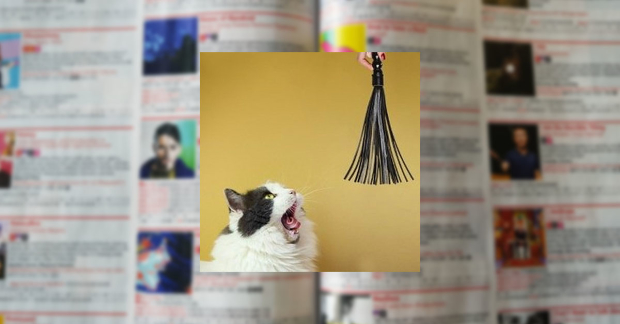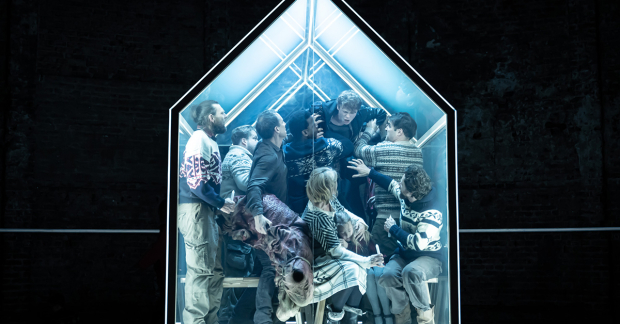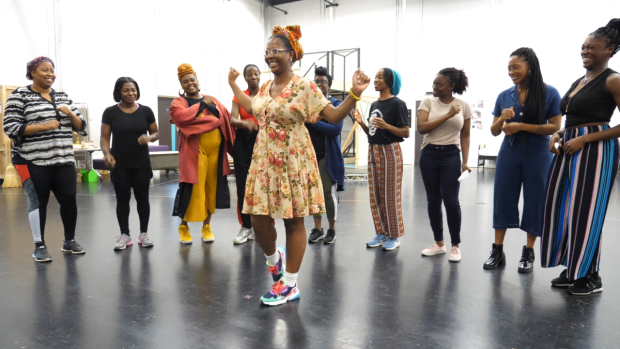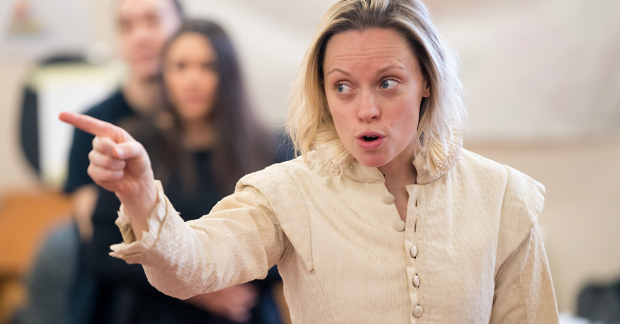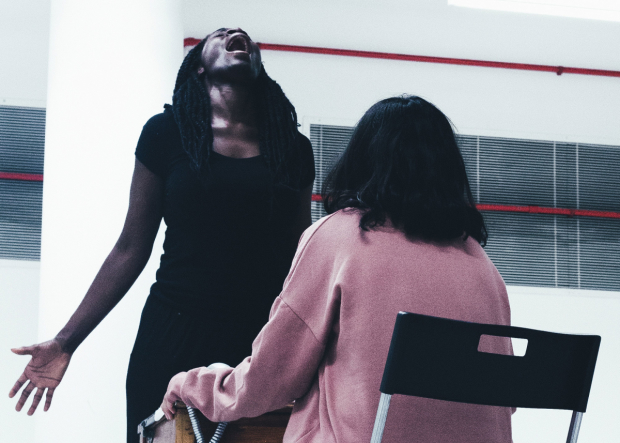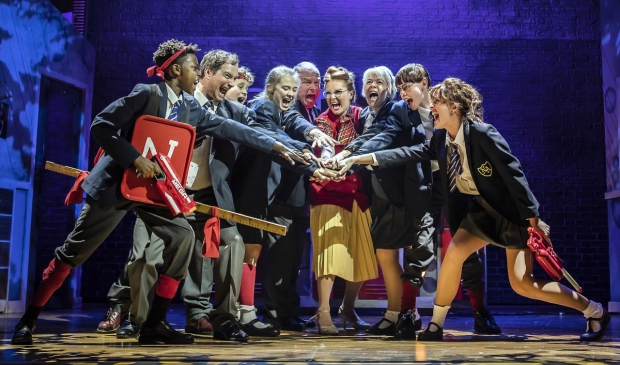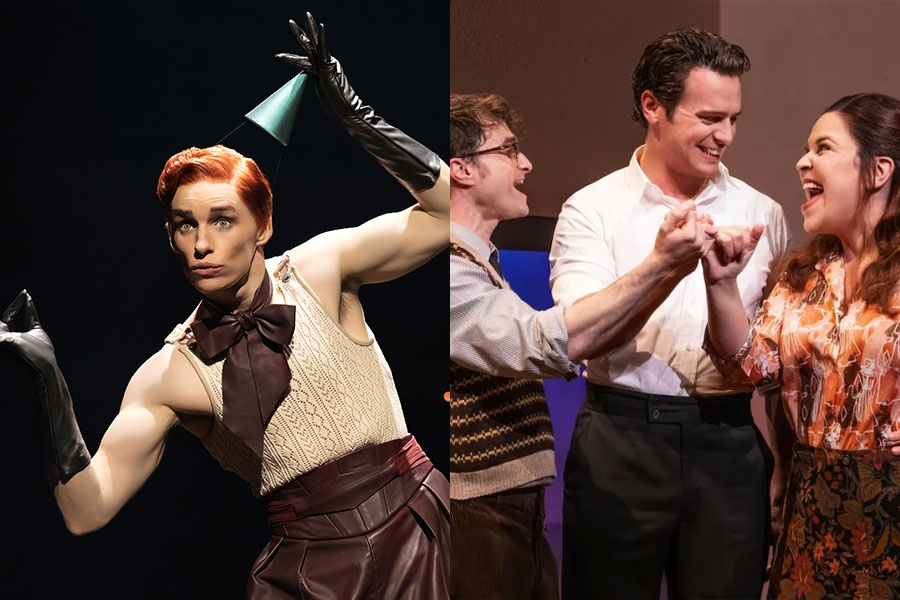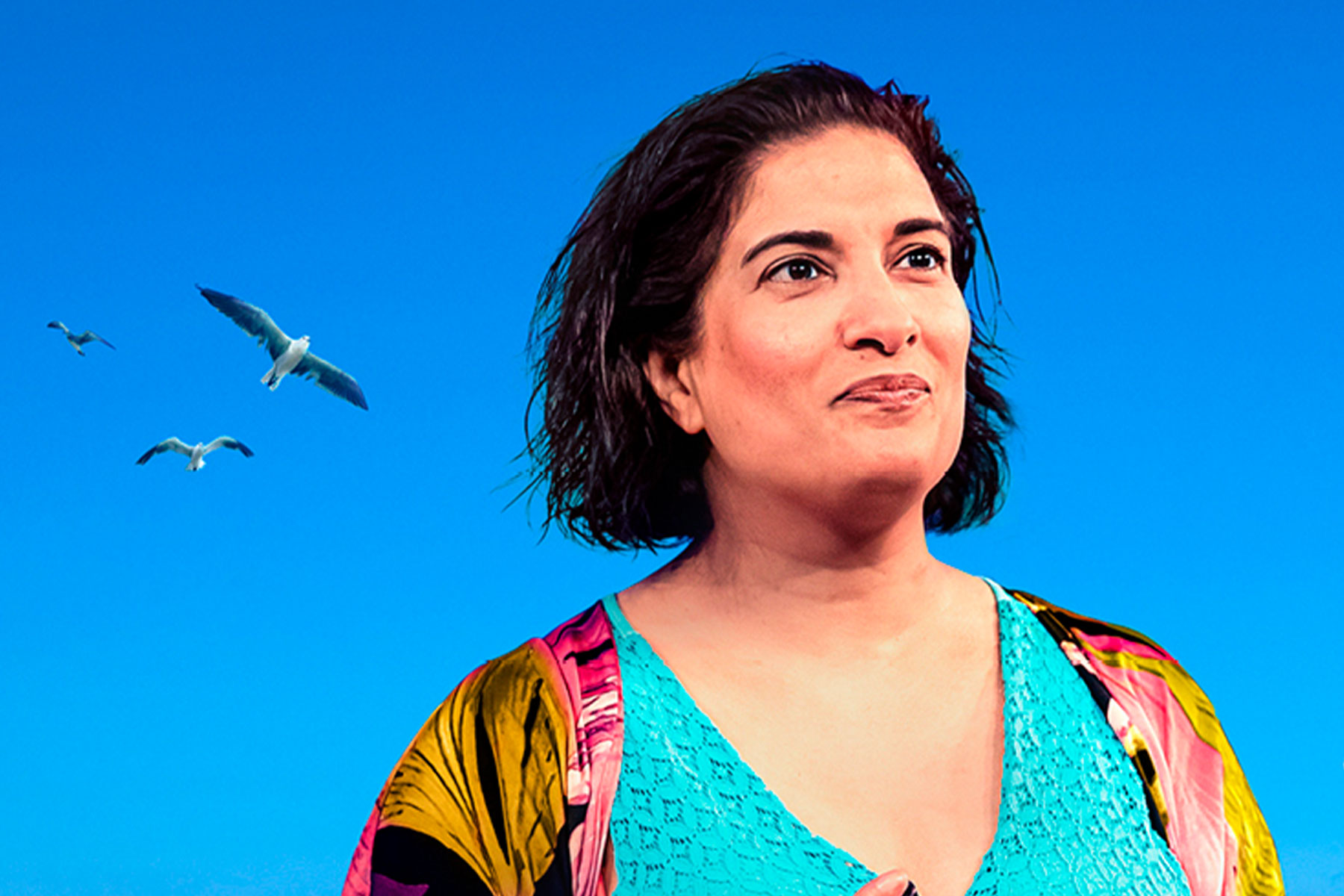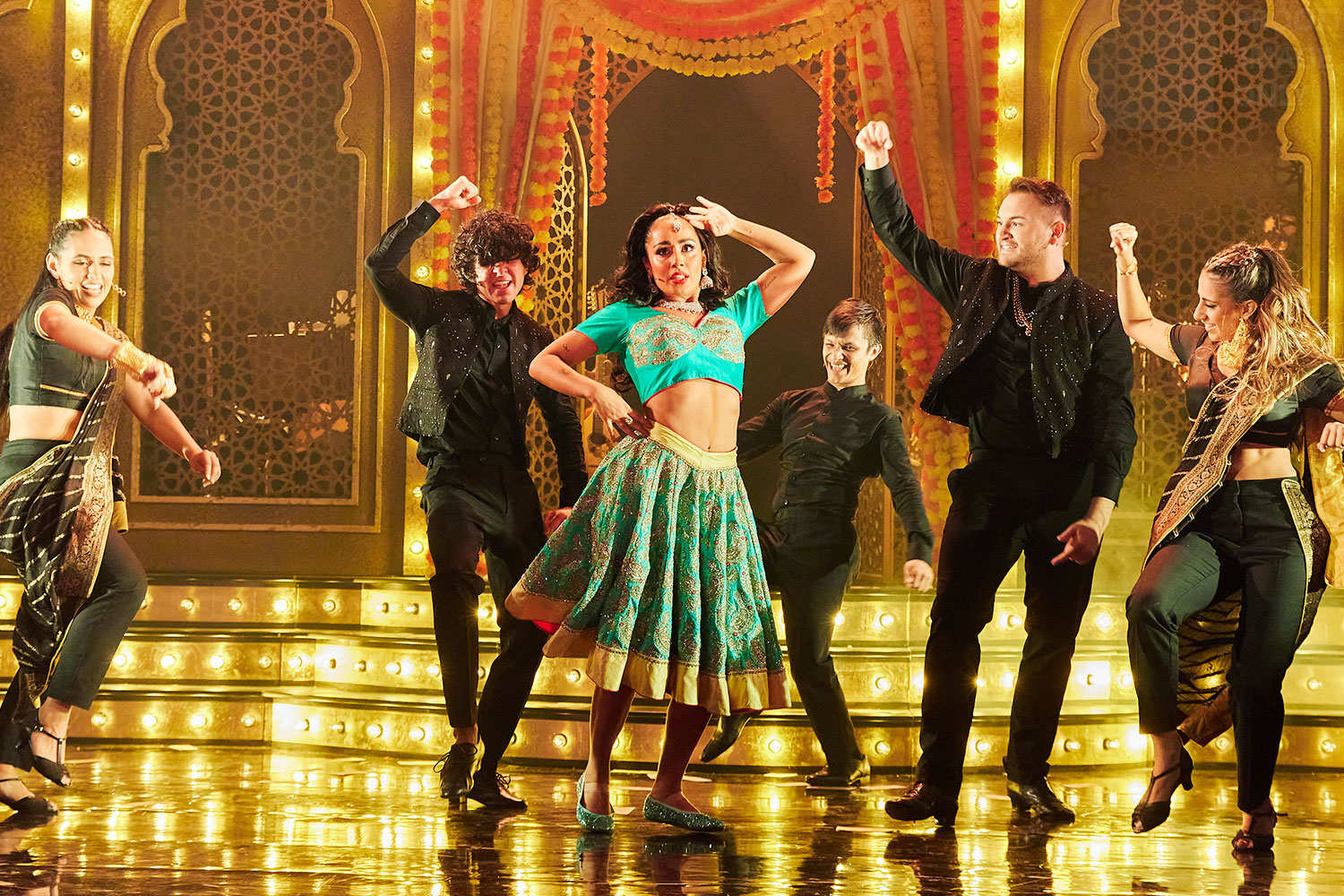Review: Crooked Dances (Stratford-upon-Avon)
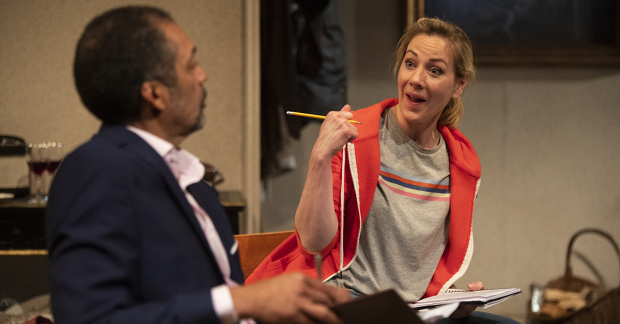
© Ellie Kuttz
On the face of it, there is something intoxicating, alluring and utterly bewildering about the jumble of ideas and themes in Robin French's intriguing new play. Nigglingly, there's a sneaking suspicion that digging a little deeper and contemplating a little harder might just make the house of cards collapse.
At the surface level, French provides a bravura display of philosophical, dramatic and linguistic prowess using one fixed location, four actors and a box set, beautifully rendered in the RSC's studio space by designer Basia Binkowska. Director Elizabeth Freestone marshals her forces admirably, while the players – Jeany Spark, Olly Mott, Ruth Lass and Ben Onwukwe – work superbly as a team, playing off each other in various combinations to great theatrical effect.
But that sneaking suspicion applies as much to their characters as to the overall piece, with characterisations so thin and stereotypical as to be almost childlike. Which is apt, given that one of French's recurring motifs is fairytales, incorporating everything from youngsters lost in the woods to gingerbread and big bad wolves.
If this is all sounding a little confusing, then welcome to the club. The first half plays out as a surprisingly conventional four-hander in which journalist Katy (Spark) and her photographer Nick (Mott) travel to France to interview retiring concert pianist Silvia de Zingaro (Lass) under the watchful eye of her manager-cum-minder Denis (Onwukwe). Inevitably, there's more to Silvia than meets the eye, and the second half takes off in increasingly surreal directions before a resolution that feels disappointingly heavy-handed after such a transformative journey.
More than that I cannot reveal for fear of spoilers – which would be a shame, since the production is well worth a visit during its brief outing at The Other Place. Suffice it to say that oddball composer Erik Satie, his predilection for the occult, and the workings of time all play a significant part in a play that never quite exceeds the sum of its parts.
Perhaps the problem lies in the scattergun abundance of ideas. Everyone from Albert Einstein to the philosopher Henri Bergson is name-checked at some point, while Satie's sometime obsession with mysticism and eccentricity steers the narrative in a haphazard kind of way – it's a suite of his piano pieces which gives the play its title. It's intellectually stimulating but what's missing is the emotional heft to provide some substance behind the pyrotechnics.
Whether it's railing against audiences for not turning off their mobile phones or the journalistic ethics of rootling through a handbag for clues, the characters too often appear as mere ciphers for their beliefs, frequently sounding didactic or formulaic.
But it's so hard to pin down this strange, fantastical work, and it may well prove to be a Marmite play – loved and hated in equal measure. It's so unquantifiable, and there are so many things that weigh on both sides of the scale, that the only fair rating is straight down the middle.




